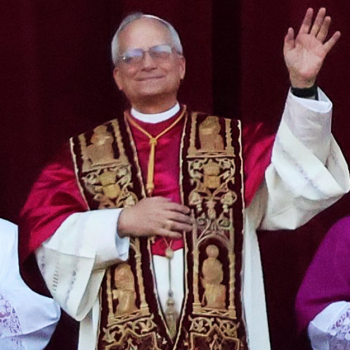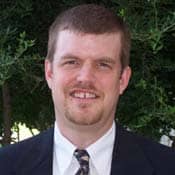Surveys from the Pew Research Center have consistently demonstrated that a majority of evangelical Christians in America believe that Islam encourages violence more than other religions do. A March 2011 poll showed that 60% of white evangelicals believe this about Islam, compared to 24% who do not. This pattern contrasts sharply with overall poll results, which show that 40% of all Americans believe that Islam particularly fosters bloodshed, and 42% do not.
Evangelical opinions about Islam have shaped the early Republican primary debates, as Herman Cain and Newt Gingrich, perhaps hoping to break out as the challenger to Mitt Romney's early lead, have raised questions about Muslims' place in America, with Cain suggesting that he would require a loyalty oath for Muslims in his administration, and Gingrich comparing the threat of Islam to Nazism.
The terrorist attacks of 9/11 were this generation's Pearl Harbor, and 9/11 has inextricably shaped American foreign and domestic policy in the decade since that awful day. We know that there has been a real threat of Muslim terrorist acts beyond 9/11, too, as illustrated by the horrific rampage by Nidal Hasan at Fort Hood, Texas, in 2009, and the failed detonation by the "underwear bomber" on a flight to Detroit later that year.
The pain and bitterness over Muslim terrorism, however, might prevent us from asking some straightforward questions: just how many Muslim terrorists are there, and does Islam actually foster violence more than other religions? There are probably about 1.2 to 1.6 billion Muslims in the world, and about 2.6 million living in America. If Islam did indeed require violence by its adherents, one might expect bombs to be going off all over the world every day. But as Charles Kurzman argues in his provocative book The Missing Martyrs: Why There Are So Few Muslim Terrorists, jihadists have not been able to mobilize proportionately large numbers of killers and suicide bombers. To be sure, tens of thousands of Muslims have engaged in terrorist activities over the past twenty-five years, but that remains less than one percent of the world Muslim population. If Islam commands that Muslims engage in terroristic violence, then it has apparently failed.
As Kurzman shows, jihadists constantly indict their Muslim brethren for not following their interpretation of the Qur'an and for refusing to take up arms against the infidels. As much as Islamists bristle with hatred for the United States and Israel, they reserve some of their most virulent rage for the vast majority of regular Muslims and Muslim-dominated governments who do not join their cause.
It is not entirely clear how Kurzman accounts for Muslims involved with paramilitary insurgent movements throughout the Middle East and Asia, who may not technically be terrorists, but who often engage in indiscriminate violence. And there are much larger numbers of Muslims who register approval of terrorism, including the 9/11 attacks, in public opinion polls. But Kurzman argues that these results speak more to rampant, irrational anti-Americanism than any actual terrorist actions. The same Muslims express admiration for Al-Qaeda on one hand, and on the other express support for democracy, women's rights, western fashions and secular entertainment, all things that real Al-Qaeda types deplore. One finds little ideological or theological consistency in polls of the Muslim world.
Kurzman's even-handed conclusion is that yes, there are Muslim jihadists who would kill us all, but there are not as many as one might think. Even those who do exist are often incompetent (see the underwear bomber). Kurzman's measured approach is an important corrective to fears of the general world Muslim menace.
Unfortunately, Kurzman's book detours into gratuitous attacks against Republican politicians, conservative think tanks, and other academics with whom he disagrees. At times, Kurzman implies that the book's story is about him (for example, when he bemoans how a post-9/11 speech he delivered was misquoted by conservative websites). I struggled to understand how these personal digressions were relevant, and I fear that they will make his book easier to dismiss as a partisan rant.
That would be unfortunate, because the essential point here is a thought-provoking one. Perhaps if we took a more sober look at what jihadist terrorism is, and what it is not, then we could streamline our efforts at combating jihadist extremism, while maintaining a charitable attitude toward the millions of Muslims who already live in our country, and who simply wish to enjoy the fruits of American liberty. This, for Christians interested in maintaining a faithful witness to Muslims, is a critical challenge and a crucial task.
7/28/2011 4:00:00 AM





